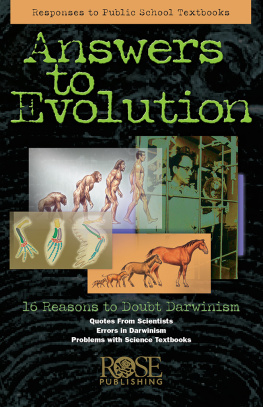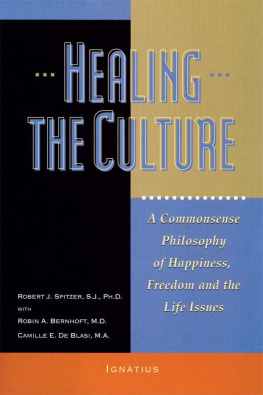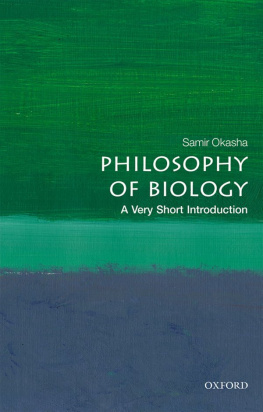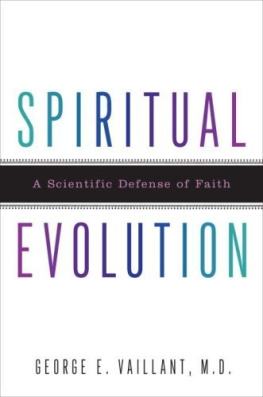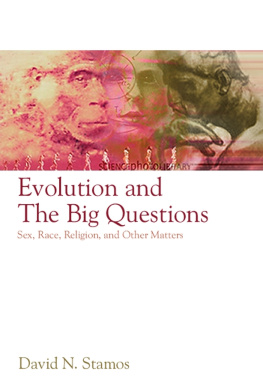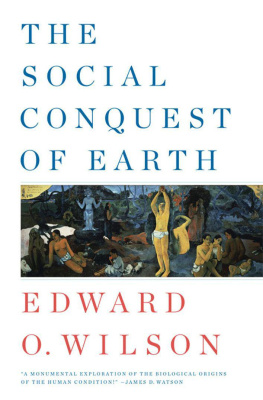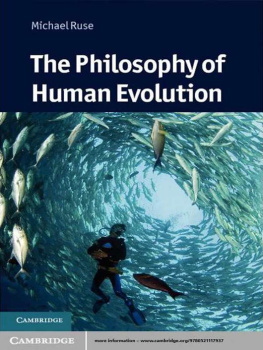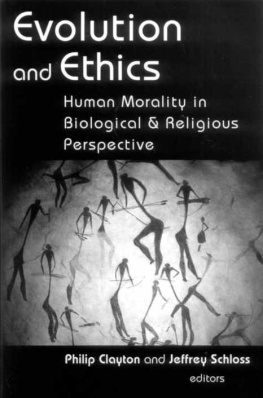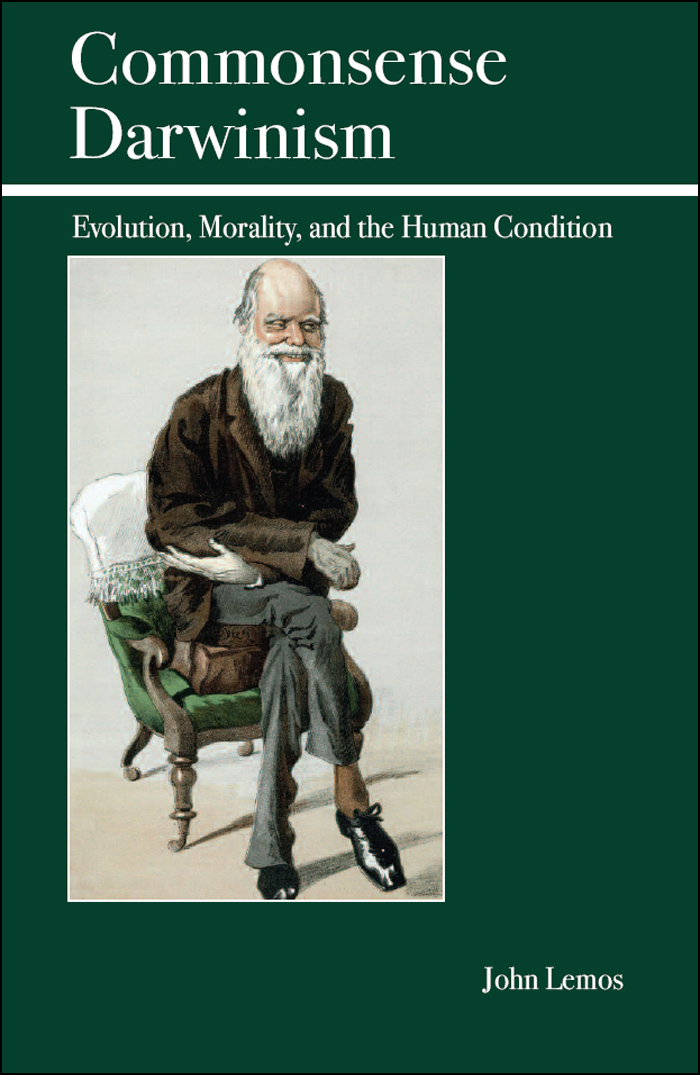Commonsense Darwinism

The cover picture is by the most famous caricaturist of the nineteenth century, Spy (Sir Leslie Ward), and appeared in Vanity Fair for September 30th, 1871. Vanity Fair was a British weekly magazine noted for its caricatures, published from 1868 to 1914.
This reproduction of the original is 2008 Jupiterimages Corporation.
To order books from Open Court, call toll-free 1-800-815-2280, or visit our website at www.opencourtbooks.com.
Open Court Publishing Company is a division of Carus Publishing Company.
Copyright 2008 by Carus Publishing Company
First printing 2008
All rights reserved. No part of this publication may be reproduced, stored in a retrieval system, or transmitted, in any form or by any means, electronic, mechanical, photocopying, recording, or otherwise, without the prior written permission of the publisher, Open Court Publishing Company, a division of Carus Publishing Company, 315 Fifth Street, P.O. Box 300, Peru, Illinois 61354.
Library of Congress Cataloging-in-Publication Data
Lemos, John, 1963
Commonsense darwinism: evolution, morality, and the human condition / John Lemos.
p. cm.
Includes bibliographical references (p. ) and index.
Summary: Examines the philosophical implications of evolutionary biologyProvided by publisher.
ISBN 978-0-8126-9936-4
1. Ethics, Evolutionary. 2. Evolution (Biology)Philosophy. I. Title.
BJ1335.L46 2008
171'.7dc22
2008032378
To my wife Laura and my three children, Rosa, Billy, and Michael
Contents
Guide
Contents
T he writing of this book would not have been possible without the support and encouragement of various entities and persons. First, I should thank the Philosophy Department at Duke University for the excellent education and financial support they provided for me during my graduate studies there. I am especially grateful to Michael Ferejohn who served as the thesis advisor for my Ph.D. thesis at Duke. While this book is not related to the subject of my dissertation, Professor Ferejohn did very patiently teach me how to read and think like a philosopher and for that I am forever in his debt. I also want to thank Coe College for providing me with a good teaching job, for granting me tenure, and for its continued support of my research through its summer faculty research stipends. I am especially grateful for the friendship and support of my two colleagues in philosophy at Coe, Jeff Hoover and Peter McCormick. I am also indebted to the head of the Honors Program at Coe College, Ed Burke. Many years ago he recruited me to teach a course called Topics in Scientific Inquiry, and he paid me to engage in summer research to prepare for the course. It was in preparing to teach that course that I developed a keen interest in the philosophical implications of evolutionary biology.
My father, Ramon Lemos, read a complete draft of the manuscript and gave me extensive and very helpful editorial advice. I am grateful for this and the love and support that he offered me over the years. Thanks are also owed to my mom, Mamie Lou, and to my brothersNoah, Bill, and Chrisall of whom have provided guidance and support for me over the years. Regrettably, my mom passed away quite a few years ago, and much more recently both my father and my brother, Bill, did so as well. Its a shame that they could not have been with us longer.
Perhaps the biggest debt of gratitude I have is to my wife, Laura, whose beauty and wit have lifted my spirits over the years. She has provided me with three fine children and her care of them has allowed me much of the time to write this book.
Finally, it should be noted that permission has been granted to use material from the following previously published articles: Evolution and Ethical Skepticism: Reflections on Ruses Metaethics, The Journal of Social and Evolutionary Systems 21:2 (1998), pp. 213221; Bridging the Is/Ought Gap With Evolutionary Biology: Is This a Bridge Too Far?, Southern Journal of Philosophy 37:4 (1999), pp. 559577; A Defense of Darwinian Accounts of Morality, Philosophy of the Social Sciences 31:2 (2001), pp. 361385; Evolution and Free Will: A Defense of Darwinian Non-Naturalism, Metaphilosophy 33:4 (2002), pp. 468482; Theism, Evolutionary Epistemology, and Two Theories of Truth, Zygon 37:4 (2002), pp. 789801; A Defense of Naturalistic Naturalized Epistemology, Critica: Revista Hispanoamericana de Filosofia 35 (2003), pp. 4963; Rachels on Darwinism and Theism, The American Catholic Philosophical Quarterly 77:3 (2003), pp. 399415; and Psychological Hedonism, Evolutionary Biology, and the Experience Machine, Philosophy of the Social Sciences 34:4 (2004), pp. 506526.
I n this book I raise questions like: Does evolutionary biology require us to give up the notion of objective moral truth? Does evolutionary biology require us to reject a libertarian conception of freedom? Does it require us to give up a correspondence theory of truth? My answers to these questions are: No, No, and No. This book is intended to support such answers, as well as answers to other questions, and in doing so it supports what I would call a commonsense Darwinism. Darwinism, I maintain, is no threat to free will, reason, morality, belief in God, orfor that matterthe moral rectitude of eating meat.
The study of the philosophical implications of evolutionary biology is nothing new. One of Darwins nineteenth-century contemporaries, Herbert Spencer, was a widely studied advocate of evolutionary ethics, and his views were influential until G.E. Moores famous critique of ethical naturalism became widely accepted in the early twentieth century. Following Moores critique, interest in the philosophical implications of evolutionary biology ceased, for the most part, for quite some time. During much of the twentieth century philosophy was dominated by logical and conceptual analysis. However, in the last twenty years there has been a renewed fascination with the philosophical implications of evolutionary biology. Besides the resurgent interest in evolutionary ethics, there has also been a growing attention to evolutions religious implications, its epistemic implications, and its implications for traditional philosophical problems about the nature of human motivation and freedom of the will.
This book is a critical study of some of the literature that reflects this renewed interest in the philosophical implications of evolutionary biology. Like many of the authors who are discussed in this book, I am fascinated by the study of what evolutionary biology might mean for the traditional problems of philosophy. Over the years I have engaged in extensive research in this field. Through my studies my own position on the philosophical implications of evolutionary biology has emerged. This book might reasonably be viewed as a defense of this position. In this introduction I will briefly explain my positions on some of the issues that will be discussed in this book and also briefly explain how I will address these points in the book.
I believe that the Darwinian theory of evolution by natural selection gives us a correct account of the origin of species. This is to say that I think the great diversity of species we see in the biological world today originated from some one or a relatively few original life forms and that natural selection is the primary mechanism through which speciation occurs. The theory of natural selection tells us that there is competition for survival and mates within the populations of species. Those organisms with traits that favor their survival or reproductive success in their environments are the ones that tend to fare well in the competition to survive and reproduce. Thus, their genes tend to get passed on at a greater rate into future generations, meaning that the traits associated with those genes are passed on to future generations, thus shaping the nature of the species over time. Various factors, such as the development of random favorable mutations or significant environmental changes, play an important role in guiding the course of evolution.



